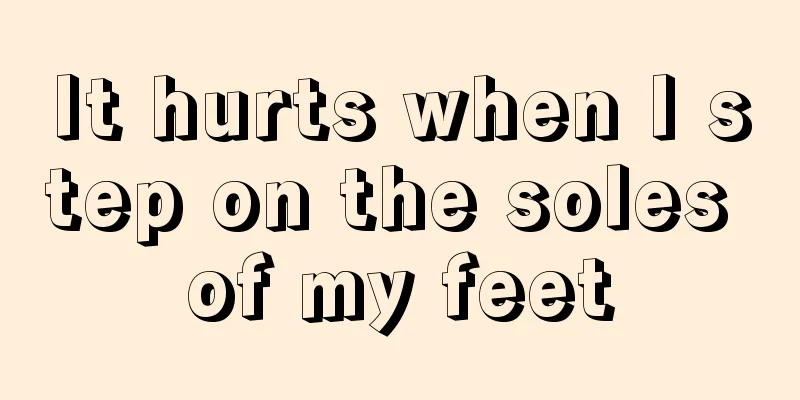Is lumbar disc herniation serious? The harm cannot be ignored

|
Lumbar disc herniation has become a common disease, but everyone should pay attention to its harm. After the disease occurs, it will be very painful and affect daily life. It must be treated as soon as possible, rest in bed more often, and maintain a good attitude. 1. What are the common hazards of lumbar disc herniation? 1. Lumbar disc herniation will accumulate to the sciatic nerve. I believe many people know about sciatica. Now with the popularization of CT, it is found that most sciatica is actually caused by compression after lumbar disc herniation. The sciatic nerve mainly comes from the L4-5 and S1-3 nerve roots and is relatively thick. When the sciatic nerve is accumulated, abnormal skin sensation often occurs in the buttocks, posterior and lateral thighs, and calves. 2. Lumbar disc herniation can cause compression of the femoral nerve. The femoral nerve mainly comes from the L2-4 spinal nerves, and its main clinical symptoms are pain, discomfort or abnormal sensation in the groin and front of the thigh. 3. Involvement of the obturator nerve. The obturator nerve is derived from the L2-4 spinal nerves, exits the psoas major muscle and enters the small pelvis. Clinically, when lumbar disc herniation infringes upon the obturator nerve, it can mainly manifest as pain or numbness in the deep buttocks and other parts of the body. 2. If you experience pain in these areas, you need to pay attention, as it may be caused by lumbar disc herniation. 1. Calf pain Secondary symptoms: Redness and swelling in the area where the pain is felt. A hidden cause: deep vein thrombosis Diagnosis: Many young office workers are prone to this disease, but because the pain is very similar to cramps, it is easily ignored by men. How to prevent it: Drink water. During long periods of sitting, keep your body well hydrated (drink 227 ml of water every two hours), which can ensure healthy blood flow and avoid the formation of blood clots. 2. Foot pain Secondary symptoms: Mild pain in the back of the thigh A hidden cause: Lumbar disc herniation Diagnosis: Even if your back feels fine, pain in your feet could mean your sciatic nerve (which snakes from your lower back to your feet) is being pinched by a herniated disk, which can be accompanied by a pins-and-needles feeling in your legs. How to prevent it: Exercise your abdominal muscles. It's easy to strain your lower back when you hunch your shoulders, so strengthening your abdominal muscles can help improve your ability to maintain good posture. |
<<: What should I do if the soles of my feet become hot during menopause? How should I treat it?
>>: What causes pain in the soles of your feet? Five factors that cannot be ignored
Recommend
Several major common causes of gastric cancer
Gastric cancer is also one of many cancer disease...
What are the uses of liquid paraffin?
Liquid paraffin is a widely used substance, which...
Which foods are likely to cause liver cancer? These 3 foods are likely to cause liver cancer
According to survey data, there are more than 3.5...
Fruit collection for skin tumor diet
The secret to preventing skin tumors is very simp...
Does chrysanthemum tea have a shelf life?
Many friends think that chrysanthemum tea has bee...
Will breast hyperplasia induce breast cancer?
Breast hyperplasia is one of the most common beni...
Why is the back of my head feeling stuffy?
Many people say that they feel stuffy and heavy a...
The skin itches after being bitten by a small insect
Insects are the largest group of organisms on Ear...
What will happen if you drink alcohol after getting rabies vaccine
Sometimes people may be bitten by dogs because th...
Breast milk causes pimples under the armpits
During the breastfeeding stage, any changes in th...
What is antibiotics
In fact, many people are not unfamiliar with anti...
How much does it cost to treat osteosarcoma
With the development of society, more and more no...
Silt-type gallstones, these symptoms are most common
The mud-and-sand type of gallstones is the most c...
What are the symptoms of onychomycosis? Let you know the symptoms of onychomycosis
Although onychomycosis is not a serious disease, ...
What are the characteristics of povidone-iodine solution
Povidone-iodine solution is a common topical anti...









